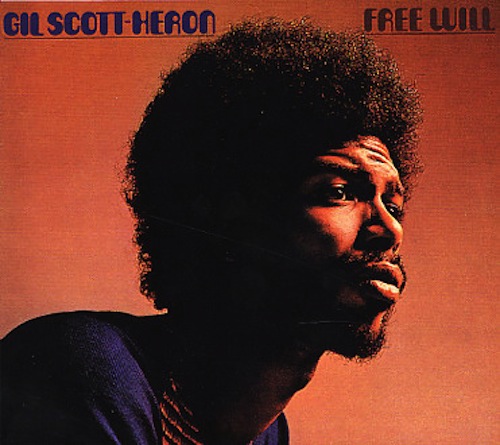
This post has nothing to do with the Gil Scott Heron album. You'll just have to wait until tomorrow, I guess.
Don’t get discouraged by the first paragraph of this John Tierney editorial. When I read the sentence, “suppose Mark and Bill live in a deterministic universe,” I thought I had accidentally clicked on David Brooks and was about to read 750 words about how Mark is a hardworking small business owner, Bill is an Ivy-League professor, and their opinions about NASCAR are going to decide the 2012 election. Fortunately, though, Tierney is not a smug panderer out to steal your last McNugget. Instead, he has written a thoughtful column about the problem of free will that links to actual scientific studies, including this one suggesting that belief in free will correlates with hard work. Tierney concludes that, “The more that researchers investigate free will, the more good reasons there are to believe in it.” This argument is totally unconvincing, of course. You can’t choose to believe in free will just because it might make you more successful, in the same way you can’t choose to believe you’re stunningly attractive just because it will make you more confident on dates. And like that, we arrive at one of the fundamental problems of free will.
Tierney quotes Schopenhauer, who articulated the conundrum nicely when he observed that “Man can do what he wills, but he cannot will what he wills.” The act of believing something is an illustrative example: we act (maybe freely) according to our beliefs, but we cannot choose what we find believable. As much as I wold like to believe in an omnipotent, benevolent god who wants me to make free throws, I can’t do it. By the same token, later this afternoon I will take my nephew Stringer to the dog park, in accordance with my will. But I didn’t choose to want to take Stringer to the park; I just do, probably because he is so handsome. My desires—like my feelings and my understanding of logical causality—seem to come to me unbidden.
This presents a problem for those of us who subscribe to a philosophy of radical freedom and, therefore, radical responsibility. The two are ethically inseparable. If my actions are a product of deterministic forces—from the family I was born into to what books I read to contemporary social biases to the molecular-level chemistry that makes me sad when I see Ke$ha or experience bone breakage—then I can’t be judged for prosecuting them. It’s a felicitous verb, since many of the foundational mechanisms of civilization, including the rule of law, are based on the idea that we hold people differently responsible for their choices and for the things they do accidentally. We only punish people for voluntary behavior. If Hitler was forced to systematically murder millions of people by the conditions of his infancy—or, if you prefer, by collisions of atoms—should he really be the most hated man in history?
The answer is, of course, “Yes, because otherwise we’ll wind up with more Hitlers.” Except if you sincerely believe in determinism, we’re going to get the same number of Hitlers no matter what people think, since they will choose what they are caused to choose. The whole thing looks increasingly like a wash, and the question of whether we believe in free will, like everything else, begins to seem like not ours to answer. Unless we accept one of the most contentious propositions of Jean-Paul Sartre: that belief is a choice, too.
Consider the study cited by Tierney, in which day laborers who professed belief in free will on a survey were consistently rated as harder workers than their we’re-at-the-mercy-of-fate counterparts. Maybe believing in free will makes you work harder, but maybe people who don’t work hard—who consistently choose to put things off, indulge their laziness, and give up when things get difficult—have a vested interest in believing that people aren’t responsible for their actions. Ask any bum, and he will tell you that no matter what we do, people wind up where they’re supposed to wind up.
Or consider that old bogeyman, The American Dream. One most often hears that America is the place where anyone can make something of himself from rich people, whether they personally made their fortunes or not. It’s possible that George W. Bush’s belief in free enterprise and an “ownership society” are what allowed him to become the son of a former CIA director, President and governor of Texas, but it’s also possible that the causality was reversed. In either case, he enjoys an advantage by believing it is so. The deserter says he left the war because he is coward, Sartre observes, but really he is a coward because he left the war. The determinist may be something similar.




Very nice. Agreed.
I am reading this blog at work, instead of working. It was destiny.